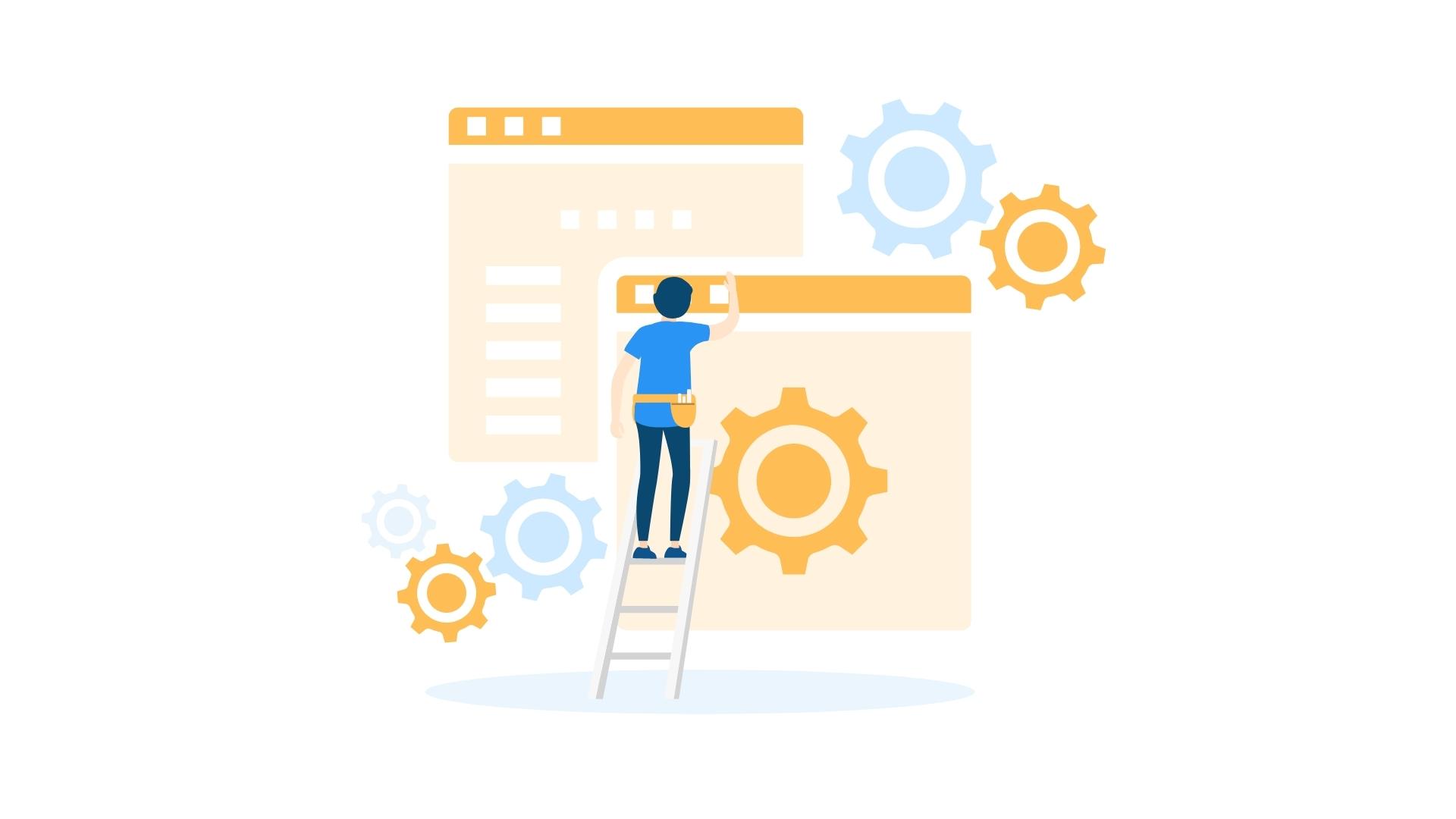Website Maintenance - What Is It And Why It's Necessary
If you are looking how to find a suitable website maintenance partner, you need to know what and why it’s important to get the most for your ongoing needs.

Maintaining a website is essential for any business with a presence online. By keeping your website up-to-date and running smoothly, you'll be able to attract more visitors and convert them into customers. So don't neglect your website maintenance—it's essential for scaling up your business!
Don't worry if you're not sure where to start when it comes to website maintenance—we're here to help. In this article, the Saikai team will cover everything you need to know about website maintenance, including what it is, why it's important, and some tips for getting started.
What is website maintenance?
Website maintenance is the process of keeping a website up and running in optimal condition. It's important to keep your website maintained in order to ensure that it's functioning properly, looking its best, and facilitating positive experiences for users.
There are tons of different processes and strategies that fall under the umbrella of website maintenance, including:
- Scanning for vulnerabilities. Website vulnerabilities can put your site at risk for cyberattacks. By regularly scanning your site for vulnerabilities, you can identify and address potential security threats before they become a problem.
- Updating software and plugins. Software and plugins need to be kept up-to-date in order to maintain website security and functionality. Outdated software can lead to vulnerabilities and crashes, so it's essential to update everything on a regular basis.
- Repairing code errors. Code errors can cause your website to malfunction or crash. By repairing code errors as soon as they're discovered, you can keep your site running smoothly.
- Adding or updating website content. Google prefers to promote content that is fresh, relevant, and well-maintained. As a result, many webmasters will update or simply repost content on a monthly basis as a part of their regular website maintenance.
- Managing website hosting and domain settings. In order to keep your website accessible and secure, you'll need to regularly manage your website hosting and domain settings. This includes tasks like renewing your domain name and updating your hosting plan as your website grows.
- Optimizing website speed. A fast website is a happy website—and a fast website is more likely to rank highly in search engine results pages. By optimizing your website speed, you can improve the user experience and increase your chances of ranking well in SERPs.
As you can see, there's a lot that goes into maintaining a website. Luckily, there are plenty of resources available to help you get started. And, if you're working with a web development agency like Saikai, we can handle all of the website maintenance for you and any ongoing web needs —leaving you free to focus on running your business.
Why is website maintenance important?
There are several reasons why website maintenance is important, but the three main benefits are:
It helps you attract more visitors.
A well-maintained website is more likely to be visited and ranked highly in search engine results pages than a neglected site. If you want to increase traffic to your website, regular maintenance is essential.
It keeps your visitors happy.
No one likes visiting a slow, outdated, or broken website. By keeping your site up-to-date and running smoothly, you can ensure that users have a positive experience —which could lead to more conversions.
It helps you avoid costly repairs.
Website issues can quickly become expensive problems if they're not addressed in a timely manner. Regular maintenance can help you avoid big repairs down the road.
Who is responsible for website maintenance?

Who is responsible for maintaining your website will depend on how your website is built and how you've chosen to host it. If you're working with a web development agency, they will likely be responsible for maintaining your website for you. However, if you've built your website yourself the approach for maintenance may vary depending on the state of the site and it’s up to the developer to give suggestions and tips according to the situation.
That said, even if you're not working with a web development agency, there are plenty of resources available to help you with website maintenance. There are WordPress plugins that can help with tasks like security scanning and content updates, and there are plenty of articles and tutorials available online to help you troubleshoot any issues that may arise.
In short, anyone can maintain a website—you just need to be willing to put in the time and effort.
How much does website maintenance cost?
Again, this will vary based on how your website is built and how you choose to maintain it. If you're working with a web development agency, you'll likely pay a $500 to $5,000 monthly fee for their services. It may sound steep, but that really depends on the service. For example if your maintenance also includes development + design for ongoing needs that would require more resources. However, if you're maintaining your website yourself, the only cost will be your time.
While there are some costs associated with website maintenance, it's important to remember that the benefits far outweigh the costs. A well-maintained website can help you attract more visitors, keep them happy, and assist you while scaling up you’re to the next stage.
7 Tips For Successful Website Maintenance

If you're new to website maintenance, there are a few tips that can help you get started:
1) Prioritize Fixing Broken Links
If there are broken links on your website, it's important to fix them as soon as possible. Not only do broken links frustrate users, but they can also hurt your website's SEO. Use a tool like Ahrefs to find and fix any broken links on your site.
2) Keep Your Content Fresh
It's important to regularly update your website's content in order to keep visitors engaged. Try adding new blog posts, product pages, or even just freshening up existing content.
3) Update Your Website Tools and Plugins
If you're using WordPress or another CMS, it's important to keep your tools and plugins up-to-date. Outdated software can lead to security vulnerabilities, reduce loading speed and other issues.
4) Monitor Your Website Traffic
Keeping an eye on your website traffic is a good way to gauge how well your site is performing. Use a tool like Google Analytics to track things like pageviews, bounce rate, and average time on site.
5) Make Website Speed Improvements
Slow loading times can frustrate visitors and hurt your website's SEO. If your website is slow, try making some speed improvements. Use a tool like Page Speed Insights to test your website speed and find ways to improve it.
6) Make SEO Improvements
It's important to regularly review your website's SEO and make improvements where necessary. Use a tool like Google Search Console to see how your site is performing in search results and identify areas for improvement.
7) Track and Improve UX/UI
It's important to track how users interact with your website and make improvements based on their feedback. Use a tool like HotJar to track things like user clicks, scrolling behaviour, and exit rates.
Final Thoughts
Maintaining a website can be challenging, but it's important to do in order to keep your site running smoothly and looking its best. There are many resources available to help you with website maintenance, including articles, tutorials, and plugins.
If you're looking for more guidance regarding website maintenance, the Saikai team are here to help—feel free to reach out!